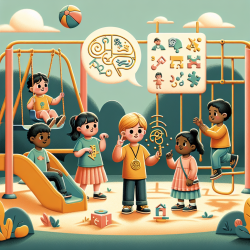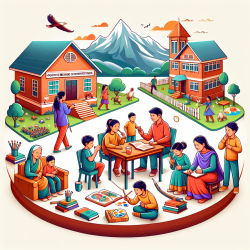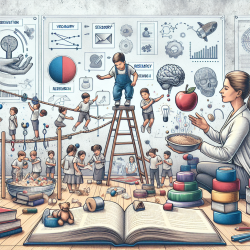As a speech-language pathologist, you understand the critical role that language plays in a child's development. Recent research titled "Reviewing the link between language abilities and peer relations in children with developmental language disorder: The importance of children’s own perspectives" sheds light on the significant connection between language skills and peer relationships in children with Developmental Language Disorder (DLD). This blog aims to distill the key findings and suggest practical steps you can take to enhance your practice and improve outcomes for children with DLD.
Key Findings from the Research
The study utilized an integrative review methodology to synthesize findings from 52 studies that directly involved children with DLD. Six main types of studies were identified:
- Interview-based
- Sociometric
- Self-report
- Task-based
- Naturalistic observation
- Staged observation
These studies collectively highlight the importance of friendships to the quality of life and the role of pragmatic language skills and self-perceptions in building friendships. Here are some of the most critical insights:
- Pragmatic Language Skills: Children with DLD often struggle with pragmatic language skills, which are crucial for initiating and maintaining peer interactions. These skills include understanding social cues, turn-taking in conversations, and conflict resolution.
- Self-Perceptions: Children with DLD frequently have lower self-esteem and self-perceptions related to their social abilities. This can lead to social withdrawal and increased risk of bullying and victimization.
- Participatory Approaches: Research that involves children directly and takes their communication challenges into account provides more comprehensive insights into their world and can lead to more effective interventions.
Implementing Research Findings in Clinical Practice
Based on these findings, here are some practical steps you can take to improve peer relationships for children with DLD:
- Focus on Pragmatic Language Skills: Incorporate activities that target pragmatic language skills in your therapy sessions. Role-playing, social stories, and peer-mediated interventions can be particularly effective.
- Enhance Self-Esteem: Work on activities that build self-esteem and self-awareness. Encourage children to recognize their strengths and provide positive reinforcement for their social interactions.
- Adopt Participatory Methods: Engage children in the therapy process by seeking their input and preferences. Use visual supports, art-based approaches, and other child-friendly methods to make them active participants in their therapy.
- Educate Peers and Teachers: Provide training for peers and teachers to foster an inclusive environment. Educate them about DLD and how they can support their classmates with language difficulties.
Encouraging Further Research
While the existing research provides valuable insights, there is still much to learn about the complex relationship between language abilities and peer relationships in children with DLD. As practitioners, you can contribute to this growing body of knowledge by conducting your own research or collaborating with academic institutions.
Consider exploring the following areas:
- The long-term impact of pragmatic language interventions on peer relationships.
- The role of technology in supporting social communication for children with DLD.
- Effective strategies for integrating participatory methods in clinical practice.
By staying informed and actively participating in research, you can continue to improve the quality of life for children with DLD.
To read the original research paper, please follow this link: Reviewing the link between language abilities and peer relations in children with developmental language disorder: The importance of children’s own perspectives.










